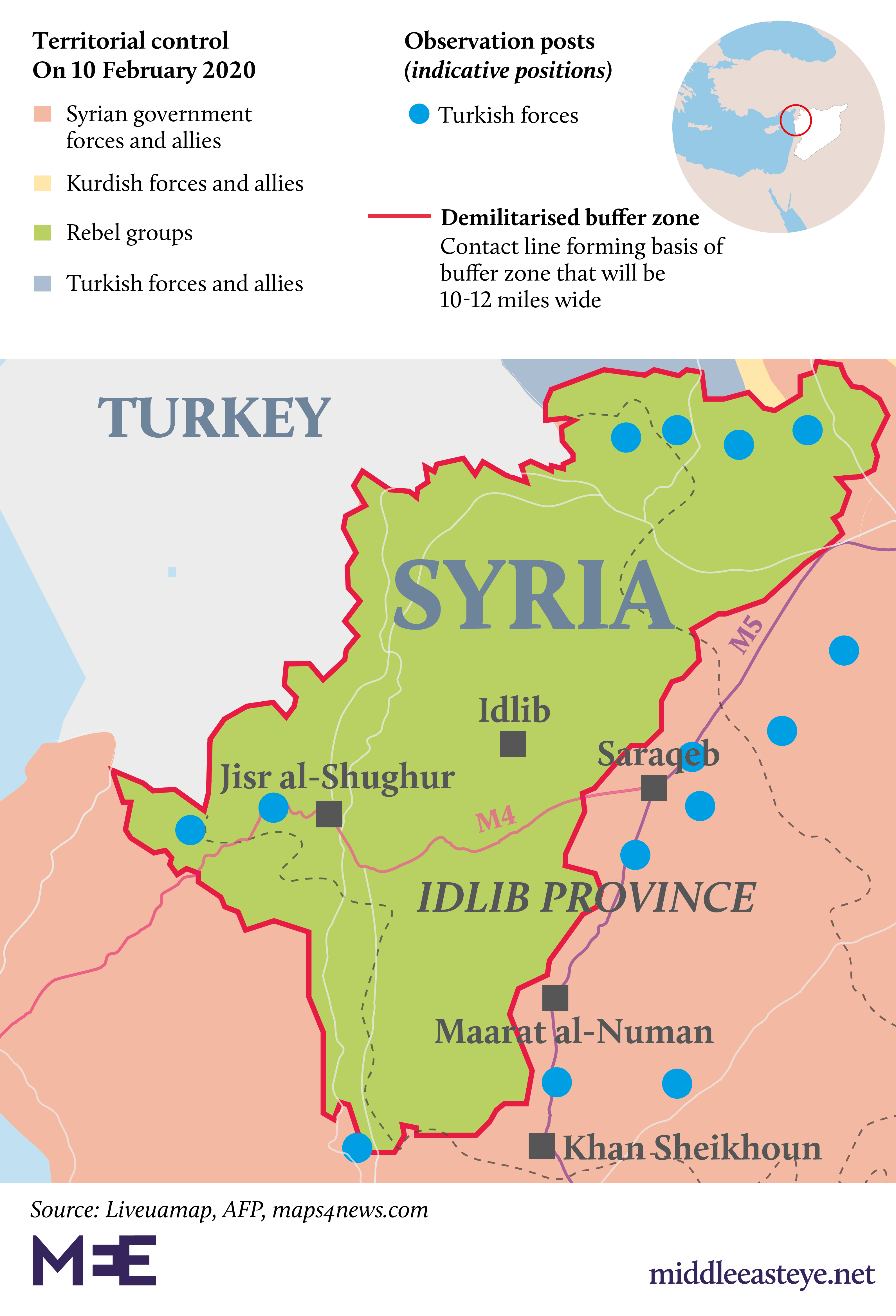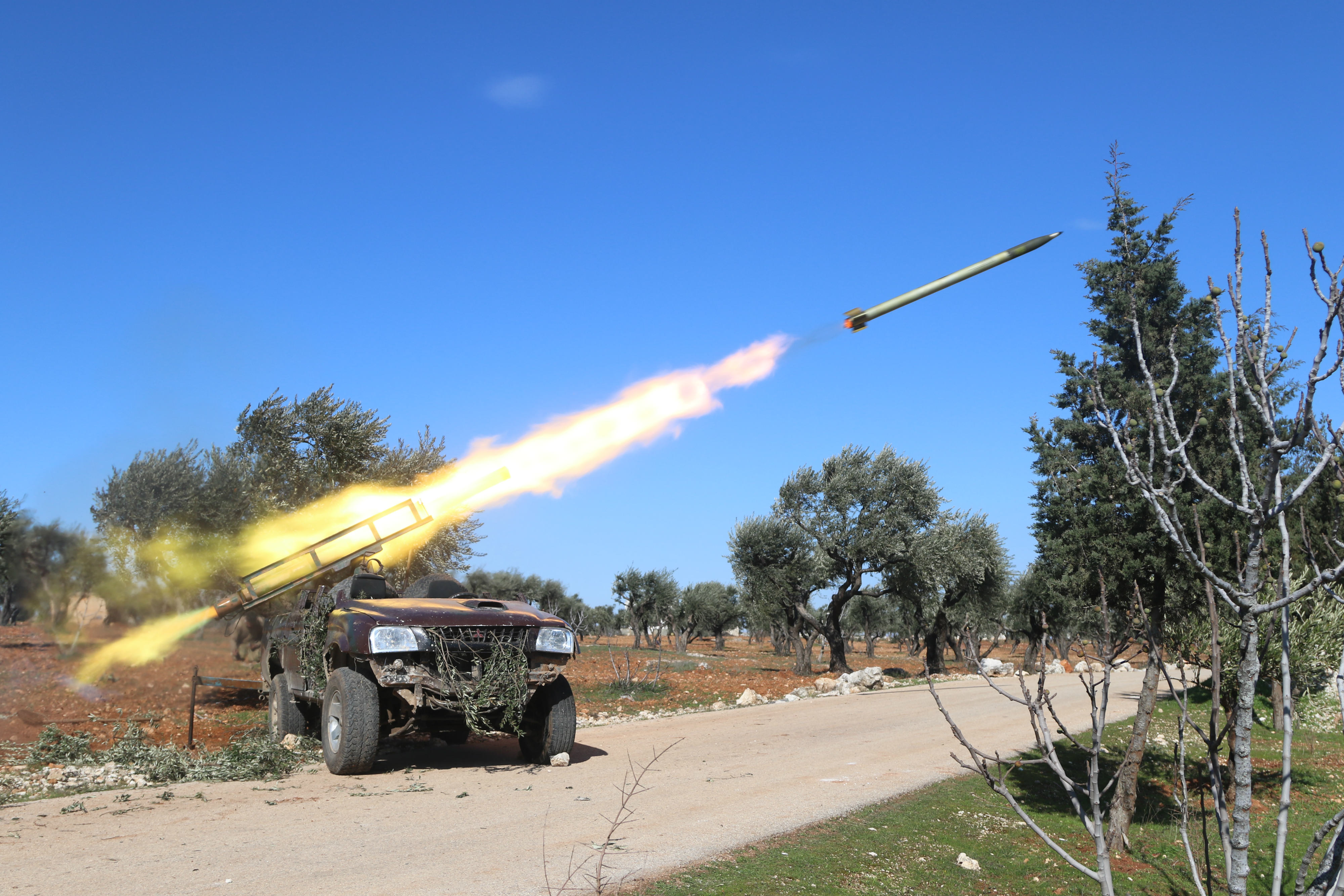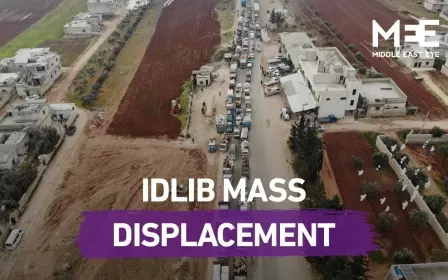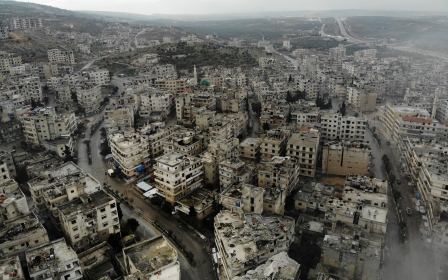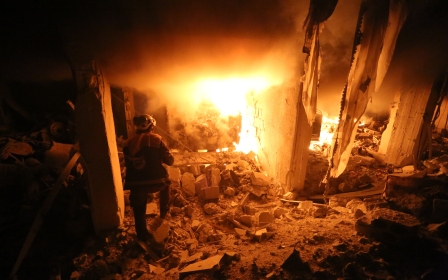Syrian government shelling kills five Turkish soldiers as Idlib clashes intensify
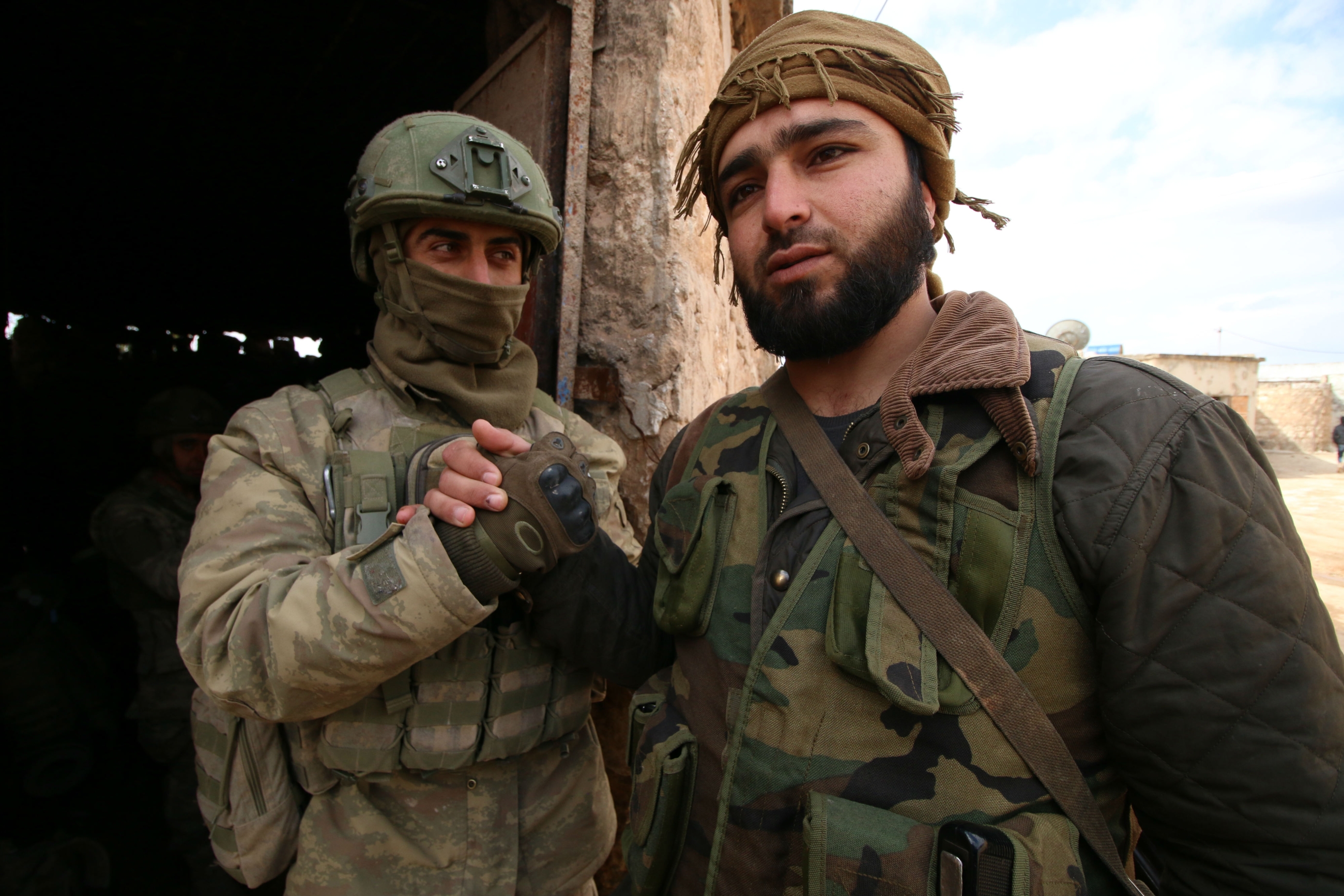
Five Turkish soldiers were killed by Syrian government shelling on a military post in Idlib province's Taftanaz on Monday, as a planned counteroffensive by Turkey-backed rebels appeared to stall.
Another five soldiers were wounded, Turkey's defence ministry said in a statement.
The ministry described the attack as an "intense assault that targeted our elements sent as reinforcements to the region with an aim to prevent clashes in Idlib, ensure our border security and stop migration and human tragedy," adding that it had retaliated.
In recent weeks, forces loyal to Syrian President Bashar al-Assad have made significant advances in Idlib, the last rebel-held province in Syria’s northwest, displacing nearly 700,000 people.
Syrian government and Russian bombardment killed 29 civilians over the past 24 hours alone, according to the Syrian Observatory for Human Rights activist group.
New MEE newsletter: Jerusalem Dispatch
Sign up to get the latest insights and analysis on Israel-Palestine, alongside Turkey Unpacked and other MEE newsletters
Over the weekend pro-Assad forces took the strategic town of Saraqeb and the junction linking the M5 and M4 highways, surrounding Turkish military positions in the process.
However, Turkish and Syrian rebel artillery began pounding pro-government positions in Idlib province on Monday morning, apparently in preparation for a counteroffensive on Saraqeb.
As yet, no ground assualt has begun, despite much troop movement.
"Turkish and rebel fighters sent several military vehicles to the frontlines in eastern Idlib, but it appears that Turkish orders temporarily paused the battle,” Muath al-Abbas, who lives in rebel bastion Idlib city, told Middle East Eye.
"The battle everyone is waiting for in Idlib has not started yet," confirmed Major Yusuf al-Hammoud, a spokesperson for the Turkish-backed Syrian National Army rebel grouping.
According to Hammoud, the offensive hinges on the outcome of discussions between Turkish and Russian officials, the latest round of which concluded in Ankara on Monday without an agreement.
Moscow and Ankara are the major foreign backers of the Syrian government and rebels, respectively, and recent violence has heightened tensions between the two erstwhile partners.
"No date has been set for the future talks. But it doesn’t mean we won’t talk to them," a Turkish official source told MEE, speaking on condition of anonymity.
Crumbling territory
Last week, Turkish President Recep Tayyip Erdogan threatened a forceful response if Assad's forces continue to their offensive, however Damascus has so far not been dissuaded from pressing its advantage.
Since December, the Russian-backed Syrian government offensive has displaced almost 700,000 people towards the Turkish border, according to the UN, and killed around 350 civilians.
Turkey, which already hosts over three million Syrian refugees and fears a new influx, has found itself backed into a corner as Damascus pushes deeper into Idlib.
Ankara has been pouring troops, vehicles and equipment into the province in an attempt to bolster rebel lines and support several observation posts it set up as part of a de-escalation agreement made with Russia.
It has now deployed in the area of Qaminas, a strategic village between Idlib city and the towns of Ariha and Saraqeb, Syrian opposition sources told MEE.
Turkey has also set up two new military bases, one near the town of Al-Atarib and a second near Maaret al-Naasan, which lies between the M5 highway and Idlib city.
Despite Turkish threats, the Syrian government is determined to take all of the area along the M5 highway, which runs between the key government-held cities of Damascus and Aleppo.
Just a sliver of road between Al-Mughayar and Aleppo city’s outskirts is still in opposition hands, and towns and villages surrounding it have been subjected to heavy bombardment.
On Sunday night, Russian planes bombarded Abyan, a village in the western Aleppo countryside hosting hundreds of displaced people, killing nine, according to the Observatory. The majority of them were children, the UK-based activist group said.
Meanwhile, nine other people were reportedly killed by Russian shelling on the nearby town of Kafr Noran, and four others died after Syrian army helicopters bombed the Aleppo town of Al-Atarib.
Activist Manaf al-Hashash, who has been displaced from southern Idlib, said Syrian government forces had launched attacks on several areas around Maarat al-Naasan.
'Government forces are about to announce full control of the M5 international highway'
- Manaf al-Hashash, activist
“The Syrian government forces have now arrived in the Miznaz region, where violent clashes with the rebels are taking place,” he told MEE, adding that the eastern suburbs of Idlib city and southwestern outskirts of Aleppo were now mostly in Assad’s control.
"Government forces are about to announce full control of the M5 international highway,” Hashash said.
Jumah al-Ahmad, a civilian displaced from southern Idlib, said Syrians fleeing the carnage were pinning their hopes on the Turkish military.
"People are tired of all the news. Because of the rain and the cold winter, the suffering of the displaced increases," he told MEE.
"Every day Turkish military convoys pass the camps for the displaced on the Syrian-Turkish border towards Idlib, and the displaced people place high hopes on the Turkish efforts. They say that the meetings between Turkey and Russia will result in the withdrawal of pro-government forces and an end to the escalation," he added.
"All displaced people hope that the suffering will end and return to their home, whether through a peaceful or military solution."
Middle East Eye delivers independent and unrivalled coverage and analysis of the Middle East, North Africa and beyond. To learn more about republishing this content and the associated fees, please fill out this form. More about MEE can be found here.


